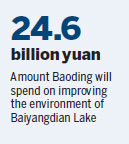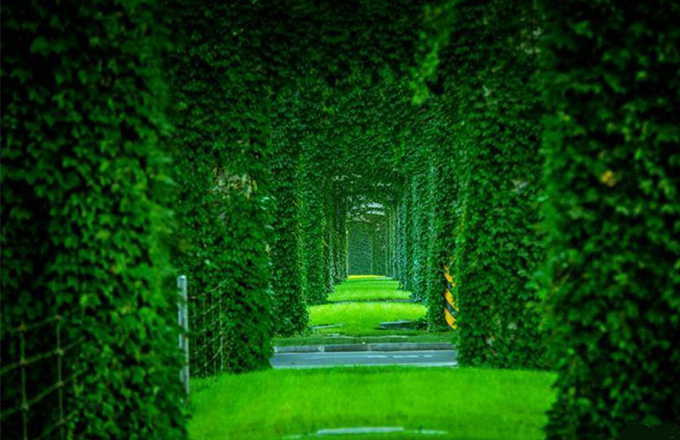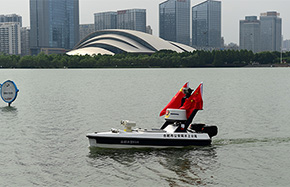Lake in new area slated for ecological improvements
Baiyangdian Lake in Xiongan New Area is one of three bodies of water selected for strengthened ecological conservation and pollution control efforts, according to the Ministry of Environmental Protection.
"The aim is to improve the quality of the water," Li Ganjie, the environment minister, said on Monday at a conference attended by senior officials of the ministry.
The other two bodies of water to be protected are Erhai Lake in Yunnan province and Danjiangkou Reservoir in Hubei province.

Xiongan New Area, which is being built about 100 kilometers southwest of Beijing in Xiongxian, Rongcheng and Anxin counties of Baoding, Hebei province, is designed to ease population pressure on the capital.
When it was announced in April, one of the goals laid out was to create a "naturally scenic city with blue skies, fresh air and clean water".
Baiyangdian, the area's largest freshwater lake, which covers 366 square kilometers - about 56 times as big as West Lake in Hangzhou, Zhejiang province - plays a major role in reaching the goal.
The protection and restoration of the ecological functions of the lake is a prerequisite for Xiongan New Area, said Xu Kuangdi, director of a council of experts for the coordinated development of the Beijing-Tianjin-Hebei region.
The lake's ecology has been damaged by years of pollution that has affected its biological systems, including its food chain and other functions.
To restore the lake, Hebei and Baoding began taking a series of measures about two years ago to curb pollution and supply clean water.
At the beginning of this year, Baoding said it will spend 24.6 billion yuan ($3.6 billion) on improving the ecological environment of Baiyangdian Lake, according to the local government.
Measures have become more forceful since the announcement of the new area. Li said the ministry will dispatch special inspection teams to control black and odorous waters, including streams that feed the lake.
The Fuhe River in Baoding, the primary river that runs into the lake, was listed as black and odorous last year by the Ministry of Housing and Urban-Rural Development.
"The team won't leave until the pollution problems are solved," Li said.






















